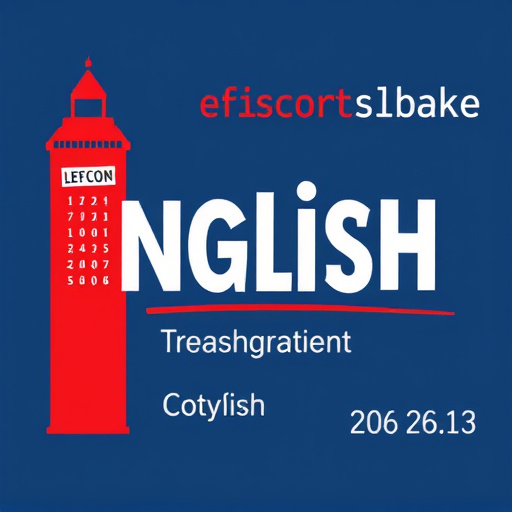Selecting textbooks for intermediate English learners should balance challenge and achievement, incorporating real-life scenarios, engaging dialogues, and interactive exercises. Ideal resources include reading, writing, listening, and speaking activities, with focus on grammar, rhythm, intonation, and pauses. Reputable publishers offer answer keys and audio materials. Encourage argumentative writing and use classic novels for vocabulary expansion and understanding of language nuances. Short stories elevate comprehension and expose learners to diverse dialects. Non-fiction books provide structured learning across subjects, improving grammar and analysis skills. Online resources and digital libraries offer access to various literature types, interactive tools, quizzes, and peer discussions for comprehensive language skill development.
Looking to enhance your English language skills? Intermediate learners often seek engaging resources to boost their proficiency. This guide curates the best books tailored for this level, offering diverse options to elevate your reading experience. From classic novels expanding vocabulary to short stories honing comprehension, we explore various genres. We also delve into non-fiction’s vast world and highlight valuable online resources, empowering you to navigate the English language with ease.
- Choosing Textbooks Tailored to Intermediate Level
- Classic Novels for Vocabulary Expansion
- Short Stories: Great for Comprehension Practice
- Non-Fiction: Exploring Diverse Topics
- Online Resources and Digital Libraries
Choosing Textbooks Tailored to Intermediate Level

When selecting textbooks for intermediate English learners, it’s crucial to choose materials that strike a balance between challenging and achievable. Textbooks designed for this level often incorporate real-life scenarios and engaging dialogues to help students build upon their existing knowledge of the English Language. Look for resources that not only focus on grammar but also teach rhythm, intonation, and pauses naturally through interactive exercises and listening activities.
One effective strategy is to find credible sources that offer a mix of reading, writing, listening, and speaking exercises. These comprehensive textbooks guide learners through the intricacies of intermediate-level grammar while encouraging them to experiment with language structures they’ve learned. Additionally, many reputable publishers include answer keys and audio materials to aid in independent study. Remember, argumentative writing can be a powerful tool for intermediate learners to sharpen their skills, so seek out resources that nudge students towards more complex forms of expression, giving us a call at any point for further guidance.
Classic Novels for Vocabulary Expansion

For intermediate English learners looking to expand their vocabulary and deepen their understanding of the language, classic novels offer an immersive experience. These works, renowned for their rich narratives, diverse characters, and intricate plots, expose readers to a vast array of words and expressions that go beyond textbook vocabulary. By delving into such texts, learners can encounter unfamiliar blends, digraphs, and diphthongs in context, enhancing their English pronunciation skills. For instance, Shakespeare’s plays introduce unique wordplay and puns that not only enrich language comprehension but also engage students with the art of persuasive literary devices.
Beyond vocabulary acquisition, classic novels provide insights into different rhythms, intonations, and pauses in English speech. The descriptive and narrative elements within these works allow learners to grasp the nuances of language usage—a crucial aspect for effective communication. Visiting us at Word Knowledge Strategies anytime can offer additional guidance on leveraging literature for language learning, focusing specifically on strategies for understanding and applying various literary devices to improve fluency and comprehension.
Short Stories: Great for Comprehension Practice

Short stories are an excellent resource for intermediate English learners looking to enhance their comprehension and language skills. These narratives offer a focused and accessible entry point into the English Language, allowing readers to engage with complex themes within a relatively concise framework. By immersing themselves in well-crafted short stories, students can improve their ability to infer meaning from context, identify main ideas, and practice summarizing texts – essential skills for effective communication.
Moreover, short stories expose learners to a diverse range of dialects, idioms, and even slang terms, reflecting the rich tapestry of the English Language. This exposure helps students develop a deeper understanding of dialect variations and improves their ability to analyze speech patterns in various contexts. As they navigate these narratives, learners can sharpen their critical thinking and inference abilities, preparing them for more advanced reading and writing tasks. Visit us at [brand/website] anytime to explore additional resources that cater to intermediate English learners’ needs.
Non-Fiction: Exploring Diverse Topics

For intermediate English learners looking to expand their knowledge and vocabulary, non-fiction books offer an engaging way to explore diverse topics within the English language. These books cover everything from science and history to culture and current affairs, allowing readers to not only enhance their reading comprehension but also learn about different subjects in a structured manner. By delving into non-fiction, learners can sharpen their skills in identifying nouns, verbs, adjectives, and other parts of speech while engaging with various narrative styles, from descriptive accounts to persuasive arguments.
Moreover, non-fiction literature exposes readers to a rich array of literary devices, such as metaphors, analogies, and rhetorical questions, which can be applied across different genres. Whether it’s understanding the structure of a persuasive essay or analyzing the imagery in a historical account, these books provide real-world contexts for learners to practice and perfect their language skills. So, give us a call at types of poetry if you’re seeking inspiration; non-fiction is a vibrant landscape where English enthusiasts can explore, learn, and grow.
Online Resources and Digital Libraries

For intermediate English learners, online resources and digital libraries offer a treasure trove of opportunities to enhance language skills. These platforms provide access to a varied writing techniques in different types of literature, catering to diverse reading interests. From classic novels to contemporary short stories, users can immerse themselves in captivating narratives that not only entertain but also teach them new vocabulary and grammatical structures.
Many digital libraries also offer interactive features like language learning tools, quizzes, and exercises designed to reinforce comprehension. Moreover, these resources often include user forums where learners can engage in discussions, share insights, and practice their writing skills through peer feedback. This collaborative environment fosters a sense of community, encouraging consistent study and improvement. Whether exploring fact vs. opinion or honing logical reasoning skills through creative writing, online platforms are an invaluable addition to any intermediate English learner’s toolkit.
For intermediate English learners, a well-rounded approach to study is key. By incorporating diverse materials like textbooks, classic novels, short stories, non-fiction texts, and utilizing online resources, learners can effectively improve their language skills. Each category offers unique benefits, from expanding vocabulary through classic literature to honing comprehension with short stories. Online libraries further enrich learning experiences by providing access to a wealth of content. Remember that choosing materials tailored to your level is crucial for successful progress in the English language.
